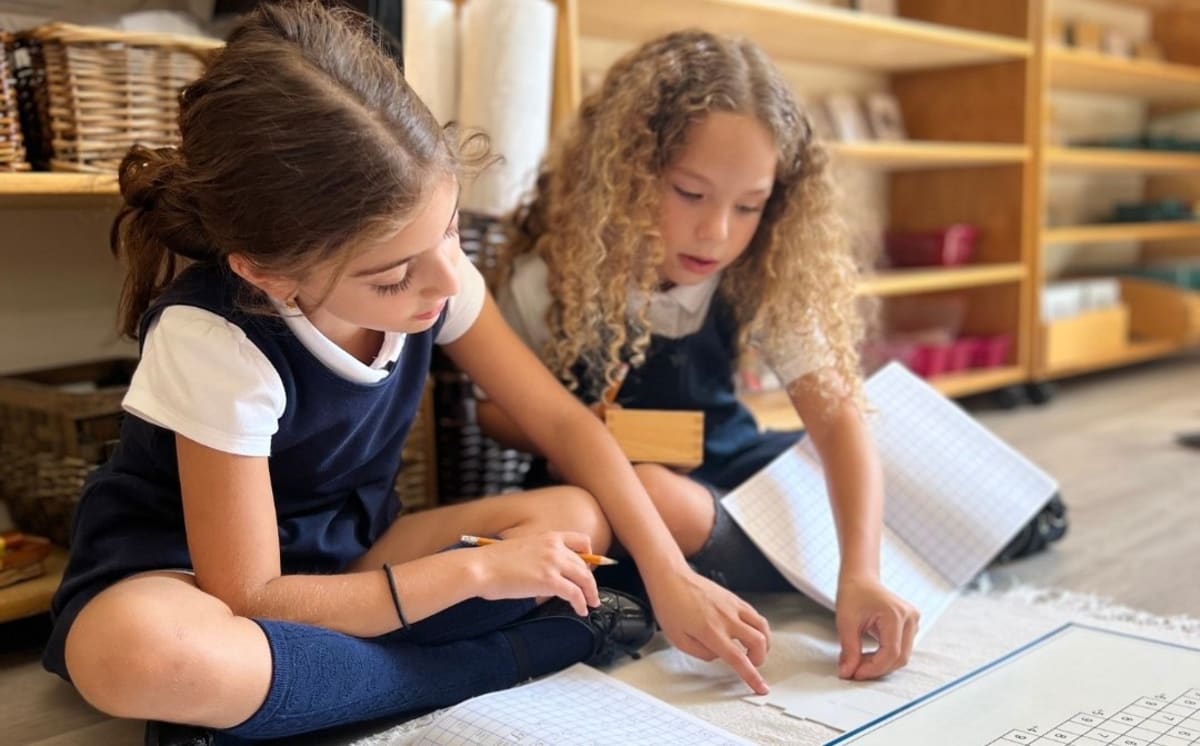
How we see Leonardo Da Vinci Academy of Arts & Sciences
Inspired by Leonardo da Vinci's and Maria Montessori's philosophies, Leonardo Da Vinci Academy of Arts & Sciences (LDVA) integrates Montessori and traditional education methodologies. This involves the Italian immersion Scuola Materna preschool and the authentic Casa Montessori for younger students. From Grades 4 to 8, the academy transitions to an enriched traditional curriculum, emphasizing whole-brain thinking and independence. Specialist classes in French, Italian, and Music, from preschool to Grade 8, complement this holistic educational approach. Inspired by the "Seven Da Vincian Principles," the curriculum cultivates creativity, problem-solving, and balanced mind-body development. The school's renovated facilities, as well as small class sizes, further enhance this innovative learning environment of LDVA. In its four decades, LDVA has consistently delivered exceptional education, guided by a mission to develop well-rounded individuals who possess a lifelong love for learning.
Compare with:
How Leonardo Da Vinci Academy of Arts & Sciences sees itself
"Founded in 1984, LDVA is an independent Catholic school in the GTA that provides exceptional education from Preschool to Grade 8. Programs include accredited Montessori and Italian Immersion Preschools, Lower Elementary Montessori, and traditional Grades 4 to 8. LDVA enables students to achieve their full potential and fosters a love of learning by promoting independence and whole-brain thinking. Core subjects follow an enriched Ontario curriculum, with specialist teachers for Music, French, and Italian."
"Our unique curriculum combines Montessori and traditional education with a Da Vincian approach to learning. From our Casa Montessori and Scuola Materna Preschools, students progress to our Lower Elementary Montessori program for Grades 1 to 3. Our Upper Elementary program begins in Grade 4 and transitions students into a traditional classroom setting where they follow an enriched curriculum up to Grade 8. Across all levels, we foster a 'Thinking Like Leonardo' approach for lifelong learning."
"From preschool to Grade 8 teachers of the Leonardo Da Vinci Academy employ “Seven Da Vincian Principles” to help students explore and cultivate their own creativity and thinking skills. By using strategies inspired by Leonardo Da Vinci children are encouraged to develop their full potential. Along with a heightened appreciation of the world, areas of development that are promoted include: problem solving, creative thinking, self-awareness, and the balancing of mind and body."


How people from the school’s community see Leonardo Da Vinci Academy of Arts & Sciences
Top-down influence on the school’s direction and tone

Sal Ritacca, President & Co-Founder
B.Sc., B.Ed.
Leonardo Da Vinci was an extraordinary example of the human mind and its capabilities. An intellect of universal proportions, Leonardo was master artist, scientist, inventor, engineer, and life-long learner. His relentless quest for knowledge, truth, and beauty, and his approach to these pursuits are an inspiration to many individuals. When we founded the Leonardo Da Vinci Academy in 1983 we could not imagine a more suitable name for the school we envisioned.
LDVA's unique “Thinking Like Leonardo” approach to living and learning encompasses both traditional and contemporary philosophies of education. Our Preschools and Primary grades are based on the teachings of Maria Montessori which are in perfect harmony with our school’s educational philosophy and the Da Vincian principles.
Now in its 40th year, LDVA continues to live up to its mission providing exceptional schooling for the formative years. Students at all levels are well served by a solid, continuous educational framework and an empowering approach to learning. We are most grateful to the hard working administrators for their commitment to the school's mission and purpose in the manner inspired by both Leonardo and Maria Montessori.
Anyone witnessing our children engaged in “Thinking Like Leonardo” will observe students leaning from their mistakes, children experiencing with all their senses, youngsters joyfully discovering their physical nature, individuals balancing their creative and logical sides, and young minds making meaningful connections with their world.
We wish to express our appreciation to all the parents and staff who have helped to keep the dream of our school alive.
THE OUR KIDS REPORT: Leonardo Da Vinci Academy of Arts & Sciences
Next steps to continue your research:
Continue researching Leonardo Da Vinci Academy of Arts & Sciences with OurKids.net, or visit school website.